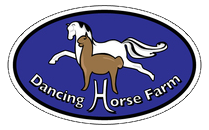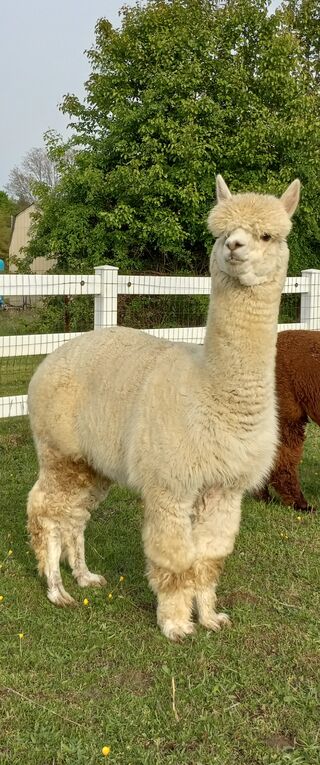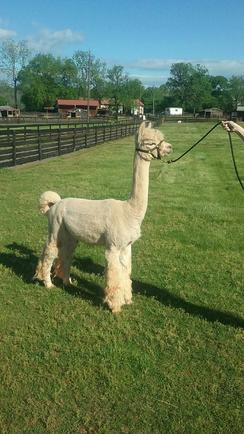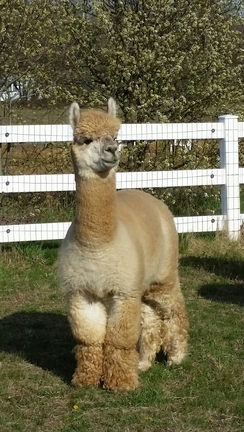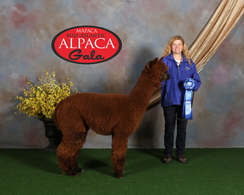The Truth About Common Alpaca Myths
The Alpaca Industry Today
MYTH: Alpacas are Difficult to Take Care of
NOT TRUE! They are easier than most people think. I always say they are easier than horses (which we own and train) but maybe a little more than a dog or cat. Maybe. Folks that have no livestock handling experience whatsoever can easily learn to work with alpacas, which are fairly docile. They only require a rudimentary shelter, a minimum of a 3-sided structure in most climates, not the luxurious stalled barns horses require. They don't wear coats in the winter like horses. Infact, alpacas are indiginous to mountainous bitter climates and adapt to cold and snow quite well in this country; I would say they prefer it! During our wintery months in NJ, the alpacas enjoy a romp in the snow, and stay well insultated in their thick fiber.
They do require a minimum of monthly health checks and worming or shots, shearing in springtime once a year to remove fiber growth, and periodic veterinary checks if necessary. Otherwise, they are fairly easy to keep. Of course, a full-time breeding operation requires more management of animals and records, and depending on whether or not females are hand bred or pasture bred.
MYTH: Alpacas are Too Expensive for the Average Person to Purchase
NOT TRUE! It couldn't be easier than today to get started in the alpaca industry. Many farms, including our farm, offer breeding quality males and females in a wide range of price options to encourage new breeders. Especially with global economic concerns and uncertainties, farms are more willing than ever to negociate prices, offer great deals on packages, free breedings for females, and even finance purchases interest-free themselves. Someone new to the business can purchase a starter breeding "herd" for a few thousand dollars today, where 6-7 years ago they may have had to spend upwards of $30,000! And non-breeding fiber animals can be purchased today for several hundred dollars.
MYTH: Alpacas Prices Have Bottomed Out; so the Industry Must be Dying
FAR FROM TRUE! Many factors influence the alpaca buyers market; U.S. economy, availability of bank loans, unemployment, job security, supply/demand of alpacas to name just a few. The alpaca industry is like any typical investment opportunity in that it does fluctuate with the stock market. When the market is high, the value is high. When the market is low, prices drop. Yes, it is true that when the U.S. fell into an economic recession a few years ago, alpaca prices did decline. However, it is also true that these dips have occurred in a cyclic pattern in the past and the alpaca industry has always come back, and in fact has come back even stronger than before. It can be stated that today is a BUYER"S MARKET; the time to get started while prices are still low but climbing back; the time to maybe upgrade an existing herd while prices on elite animals are affordable, compared to recent years.
Just look around and anyone can see that the alpaca industry is expanding in this country. Top designers like Ralph Lauren, Nicole MIller, Eileen Fisher are using alpaca in a big way in this Fall's fashion designs. We see more and more alpaca garments in department stores like Macy's and Lord and Taylor in our area. Go to your state or local farm fair and you might be surprised to see alpacas there. Spend the day at a Fall festival or craft fair and I'm sure you'll see alpacas there, too. Seven or eight years ago, you probably didn't see any around except in a field somewhere in the boondocks.
MYTH: There's a Ton of Alpacas out There so the Industry Has to be Saturated
NOT TRUE! Yes, the number of alpacas is on the rise, and the number of new farms entering the industry is likewise on the rise. The industry in this country is, however, by no means saturated. We think, far from it. Many of the original alpacas imported into this country are now deceased, and realistically the lifespan of an alpaca is only 15-20 years. There's also a continuous cycle of retirees, moves, closures, changes of interest, ect that add to a decrease in herd sizes. It is up to existing breeders and new breeders to keep programs running in order to maintain numbers of alpacas in this country. Comparative to other livestock like cattle or sheep in terms of numbers, the alpaca industry has a longggg way to go before it saturates its own market.
MYTH: Investment in Alpacas is Just Not Profitable
NOT TRUE! Investment opportunites in alpacas today are very real. There's a greater profit margin today because purchase prices are lower and demand is still strong for breeding stock and fiber animals as well. Tax incentives and income shelters for alpaca ownership and business are substantial, as they have been. And many people, including ourselves, thinking about alpacas are thinking"outside the box" in this economy. They are getting into alternative aspects of the alpaca industry such as making fire logs from poop, harvesting worm castings from poop, selling composted alpaca poop, concentrating on the fiber and textiles, opening farm stores with alpaca products, offering eco-tours, hosting group/corporate retreats, setting up farm B & B's, the list goes on and on. Your involvement in the industry can be as small or large as you want; the sky is really the limit!
MYTH: Investment in Alpacas Will Probably Flop, Like Everything Else
NOT TRUE! When the stock market crashed recently, the Wall Street Journal reported that investors were flocking to alpacas for secured investments. And they still are adding alpacas to their investment portfolios. Alpaca investment is THE ONLY investment that can be insured! There are several livestock insurers to choose from and who will help to personalize a policy that is suited to the type of business and nature of investment. It's really hard Not to increase your investment dollars!
MYTH: You Need a Large Breeding Herd to Make Money
NOT TRUE! Many, many people purchase just a few alpacas because they are attracted to the lifestyle of farm and alpaca ownership, but don't want the demands of running a large production farm. Tax incentives are available to small and big farms alike, and some folks don't want to establish a breeding herd at all. They want to maintain a small herd of fiber animals and focus on the fiber end of the industry. I have many friends who are making a good living with a small group of fiber alpacas and a farm store selling yarns and alpaca products. Once you realize all the facets to the industry, you will quickly see that you can earn a living or supplement income with alpacas rather easily; and you don't need 100 animals to do it! You don't even need a farm to do it! Many alpaca owners choose to agist their alpacas, earning profitable income while living in the cities or just not desiring the farm life.
MYTH: The Alpaca Business has to be a Full-Time Committment
NOT TRUE! As we've discussed already here, involvement in the alpaca industry can be big or small depending on how far YOU want to take it! Anyone can start the business with a couple of fiber animals and sell yarns/ rovings/products, or start a breeding program and make this a full-time commitment, or they can just keep it simple and supplement a retirement or existing career income. My husband and I run our successful breeding program ourselves with a herd of about 40 animals, a profitable internet alpaca farmstore, show our animals all over the country, AND we both work off the farm! They say the busiest people have the most time......
We would love the opportunity to work with folks to develop a farm/business plan right for them and their lifestyle and to help new breeders in this fascinating industry! Contact us today to get started!!
Kim Gleason, Phd
Dancing Horse Farm
October 27, 2014
